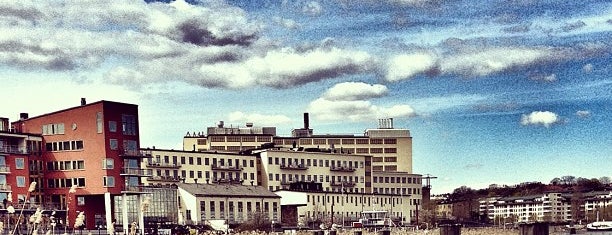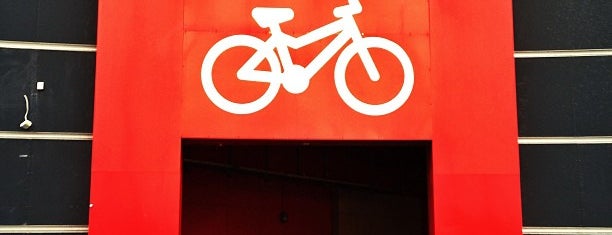![]() All inhabitants in this still developing area make up part of its eco-cycle. Called the Hammarby Model, it is one of the reasons why Stockholm was chosen to be the first ever EU Green Capital in 2010. Read more.
All inhabitants in this still developing area make up part of its eco-cycle. Called the Hammarby Model, it is one of the reasons why Stockholm was chosen to be the first ever EU Green Capital in 2010. Read more.
![]() This was the launch site for the 18 city Train of Ideas European tour, a rolling exhibition about sustainable living, as Hamburg kicked off 2011 as the second European Green Capital. Read more.
This was the launch site for the 18 city Train of Ideas European tour, a rolling exhibition about sustainable living, as Hamburg kicked off 2011 as the second European Green Capital. Read more.
![]() Between everyone living within 300 meters of an open green space and having a "Green Belt" literally surrounding it, this cosy Basque city was a true worthy European Green Capital of 2012. Read more.
Between everyone living within 300 meters of an open green space and having a "Green Belt" literally surrounding it, this cosy Basque city was a true worthy European Green Capital of 2012. Read more.
![]() Nantes was the first French city to successfully re-introduce electric tramways. This, along with planned investments in buses and bicycle infrastructure, earned it the title EU Green Capital of 2013. Read more.
Nantes was the first French city to successfully re-introduce electric tramways. This, along with planned investments in buses and bicycle infrastructure, earned it the title EU Green Capital of 2013. Read more.
![]() The future Green Capital of 2014 wants to have 50% of inhabitants cycling to work by 2015. To achieve this, the city is connecting Fisketorvet and Bryggebroen with a bike-only bridge: Cykelslangen. Read more.
The future Green Capital of 2014 wants to have 50% of inhabitants cycling to work by 2015. To achieve this, the city is connecting Fisketorvet and Bryggebroen with a bike-only bridge: Cykelslangen. Read more.
![]() 21-23 June, Bristol Solar City launched a series of workshops and talks aimed at reaching the city's goal to become UK's Solar Capital - just a week after it has been announced EU Green Capital 2015! Read more.
21-23 June, Bristol Solar City launched a series of workshops and talks aimed at reaching the city's goal to become UK's Solar Capital - just a week after it has been announced EU Green Capital 2015! Read more.
![]() Congratulations, Ljubljana, you are the 2016 EU Green Capital – in large part thanks to the efforts made by the Public Housing Fund (PHF) in making housing low-energy and energy efficient. Read more.
Congratulations, Ljubljana, you are the 2016 EU Green Capital – in large part thanks to the efforts made by the Public Housing Fund (PHF) in making housing low-energy and energy efficient. Read more.







